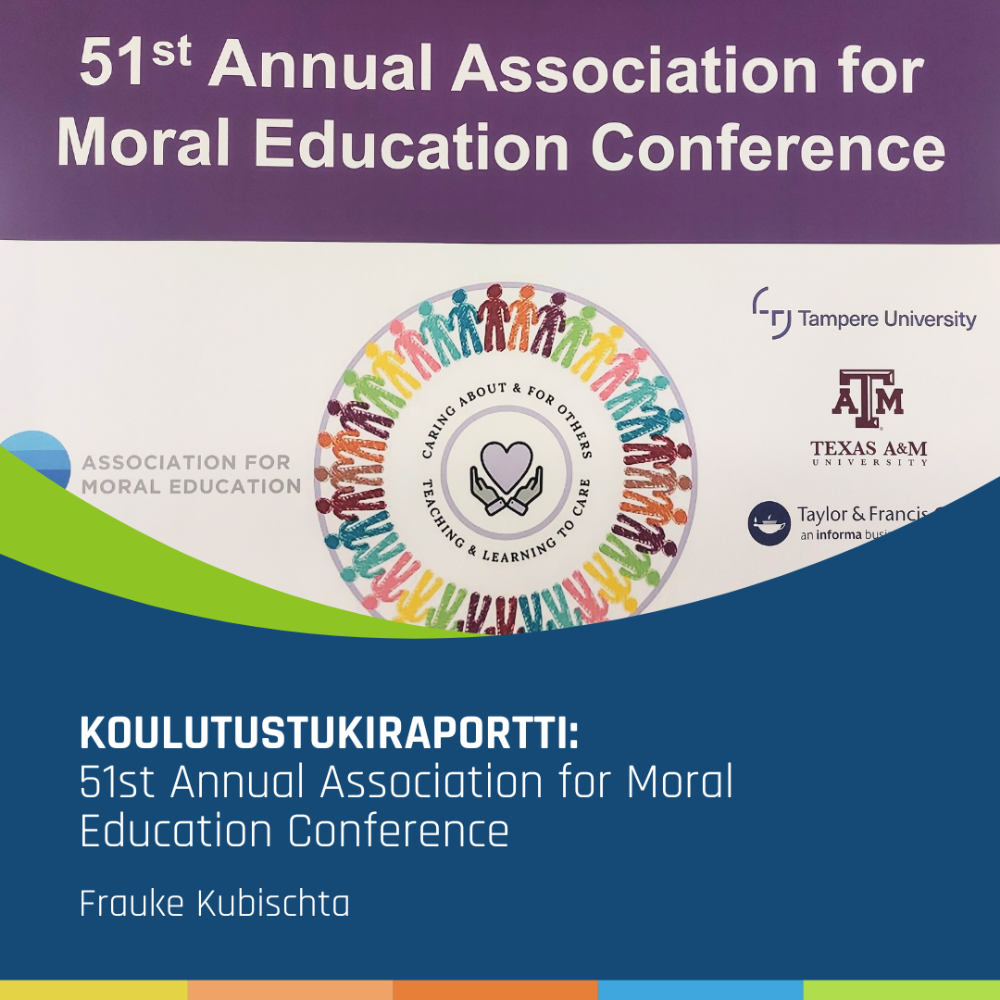
Each individual paper presentation session had a key theme related to the main conference topic, such as embodiment, teaching caring, social justice, schooling, character, empathy, early childhood education, and philosophy. This wide array of session themes allowed presenters from diverse backgrounds and research areas to approach the main conference topic from different perspectives and angles. In doing so, it provided an opportunity to share research and insights on character development, moral education, morality, values, ethicality, and care.
Our presentation was assigned a slot in the individual paper presentation session with the central theme Character. Two other presentations were included in the session: one on Cultivating Self-Awareness in Character Education: A Case Study of Buddhist Higher Education in Taiwan (Meiyao Wu), and another titled Reimagining Teacher Preparation: Teaching Care and Character in Community (Kate Allman, Raven Scott, Christina Richardson). A fourth paper was added to the session because its original session was cancelled due to an insufficient number of presenters. That presentation was titled Lack of Empathy at the Workplace: Contexts and Consequences of Shame and Humiliation (Mia Silfver, Jaana-Piia Mäkiniemi).
The conference day was kicked off with a keynote by Professor Emmanuel Acquah, titled Caring for the “Other”: Education for Care, Social Justice and Inclusion. Professor Acquah, from Åbo Akademi University, shared research insights on equity education and, specifically, on the importance of culturally inclusive education that meets the individual needs of each student.
Coach educators, coach developers, or other stakeholders within coach education have not yet found their way to participate in the Association for Moral Education events. Our presentation was the only one in the conference programme that highlighted the need for coach education to emphasize moral and character education as part of formal coach education. This is not to say that such content is not already included, but considering the transgressions committed by coaches towards athletes in their care (just think of recent cases where coaches have abused or harassed their athletes), it is evident that moral and ethical education needs to take a much more central position in coach education.
Coaches function as role models (Hamilton & LaVoi, 2017); they set examples for others and therefore need to emulate appropriate behaviour, display sound moral and ethical decision-making, and establish behavioural standards for others to follow. The ICCE (2013) identified that the actions of coaches are guided by their values, coaching philosophy, and goals. Côté and Gilbert (2009), as well as Thompson, Rongen, Cowburn, and Till (2022), stated that effective coaches strive towards the holistic development of athletes by applying their interpersonal, intrapersonal, and professional knowledge. If coaches are guided by their values, coaching philosophy, and interpersonal and intrapersonal knowledge, then why do we still witness coaches committing transgressions towards athletes, or even encouraging athletes to commit transgressions such as doping violations, cheating, competition manipulation, and poor sportsmanship?
Observed coach behaviour in these cases does not meet the expectations of appropriate coaching conduct. Hence, it is necessary to focus on developing coaches’ values, morals, and ethicality within formal coach education. Moral development, adherence to values, and ethicality are especially important because coaches hold positions of power compared to the athletes they work with. They possess expertise and access to information, make decisions that impact others, and hold public reputations.
It lies within the power of coach developers, coach educators, and stakeholders in coach education to integrate moral development, ethicality, and values-based coaching into formal coach education. Through this, coaches can develop their own morality, ethicality, and coaching philosophy, be held accountable, and gain access to tools they can apply in their own coaching to support the moral development of their athletes. Such tools include the “Double-Goal Coach” Positive Coaching Alliance (Ferris et al., 2015), the Values Training Programme from Singapore (Koh et al., 2016), and Play it Smart (Petitpas et al., 2004).
We suggest that ethics education be systematically integrated into coach education programmes. Scenario-based training, sharing of best practices, mentorship, and peer reflection should all find their place in coach education curricula. Additionally, it is important to conduct long-term analyses of coach ethics development and to promote policy development on this topic by National Governing Bodies.
Dudley (2025) states: “Moral and ethical development in coaching is fundamental to cultivating integrity, fairness, and respect in sports — but more needs to be done in this area.”
References
Côté, J., & Gilbert, W. (2009). An integrative definition of coaching effectiveness and expertise. International Journal of Sports Science & Coaching, 4(3), 307–323.
Dudley, D. A. (2025). Educating Character Through Quality Physical Education: A Pedagogical Model. Quest, 1–18.
Ferris, K. A., Ettekal, A. V., Agans, J. P., & Burkhard, B. M. (2015). Character development through youth sport: High school coaches’ perspectives about a character-based education program. Journal of Youth Development, 10(3), 127–140.
Hamilton, M. G., & LaVoi, N. M. (2017). Ethical professional identity and the development of moral exemplar collegiate coaches. Journal of Moral Education, 46(2), 114–128.
International Council for Coaching Excellence, the Association of Summer Olympic International Federations, and Leeds Beckett University (ICCE, ASOIF & LBU). (2013). International Sport Coaching Framework (Version 1.2). Human Kinetics, Champaign, Illinois, USA.
Koh, K. T., Ong, S. W., & Camiré, M. (2016). Implementation of a values training program in physical education and sport: Perspectives from teachers, coaches, students, and athletes. Physical Education and Sport Pedagogy, 21(3), 295–312.
Petitpas, A. J., Van Raalte, J. L., Cornelius, A. E., & Presbrey, J. (2004). A life skills development program for high school student-athletes. Journal of Primary Prevention, 24, 325–334.
Thompson, F., Rongen, F., Cowburn, I., & Till, K. (2022). The impacts of sports schools on holistic athlete development: A mixed methods systematic review. Sports Medicine, 52(8), 1879–1917.
Artikkelin kirjoittaja Frauke Kubischta osallistui 51st Annual Association for Moral Education konferenssiin ja on saanut Suomen Valmentajien koulutustukea osallistumiseen. Artikkeli on tiivistelmä hänen kokemuksistaan konferenssista.

